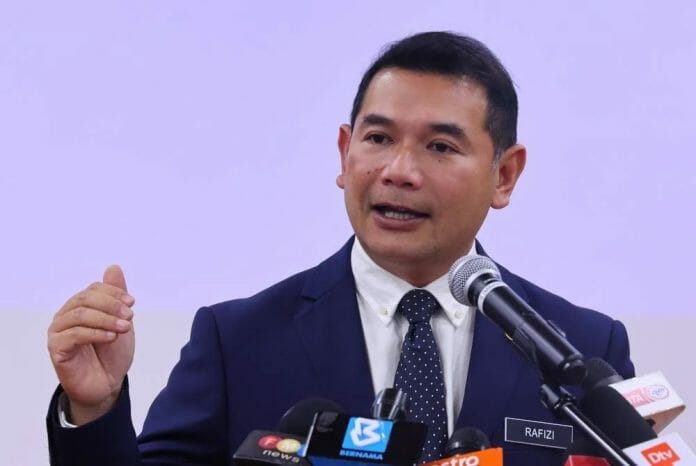Malaysia is committed to achieve the aspiration of net-zero greenhouse gas (GHG) emissions as early as 2050. In achieving this goal, one of the initiatives identified by the government is the implementation of carbon capture, utilisation, and storage (CCUS) technology.
Minister of Economy Rafizi Ramli said, CCUS will be utilised to capture and permanently store carbon dioxide (CO2) from major CO2 emission sources, particularly in hard-to-abate industries. CCUS technology stands as a crucial mitigation method in reducing CO2 emissions and can assist the country in achieving the Paris Agreement objectives.
The Ministry of Economy inaugurally organising Malaysia’s 1st Carbon Capture, Utilisation & Storage (CCUS) Conference 2023 with the theme “Unlocking Carbon Capture, Utilisation & Storage as A Critical Energy Transition Lever to Drive Economic Opportunities” today and tomorrow (Nov 23 & 24) at the Marriott Hotel, Putrajaya.
The organisation of this conference aims to gather input and feedback from various stakeholders to assist in identifying suitable technologies, developing regulatory mechanisms, and implementation methods of CCUS in Malaysia.
The conference aims to assemble groups of experts, industry leaders, and policy makers in four main areas: legislation; investment and industry; technology and infrastructure; as well as risks and liabilities both domestically and internationally.
Among the key presenters at this conference is Alex Zapantis from the Global CCS Institute, an international think tank with the goal of expediting the implementation of carbon capture and storage technologies to address climate change.
The government recognises CCUS activities as a new strategy for green and low carbon growth in the country by offering attractive incentives to investors. Aside from possessing substantive carbon storage capacity, strategic locations, good transportation networks, and a conducive business ecosystem make Malaysia a competitive nation as CCUS hub in the region.
The National Energy Transition Roadmap (NETR) launched in July 2023 acknowledges CCUS as one of its focus areas and a catalyst for energy transition initiatives that open economic opportunities and sustainably reduce carbon footprints.
NETR has set targets to develop three (3) CCUS hubs by 2030 with a storage capacity of up to 15 million metric tons per year. By 2050, the storage capacity is expected to increase between 40 to 80 million metric tons per year. CCUS has also been identified as one of the four new growth areas under the New Industrial Master Plan 2030 (NIMP 2030) to achieve Malaysia’s net-zero aspiration by 2050.
Rafizi added, from an economic perspective, CCUS has the potential to become a new source of economic growth for the country and generate high-value foreign investments.
The CCUS industry is projected to contribute to Gross Value Added (GVA) of USD200 billion to USD250 billion cumulatively over a 30-year period. Moreover, CCUS has the capacity to create up to 200,000 new job opportunities and foster the development of Small and Medium Enterprises (SMEs) in related fields.
To stimulate the CCUS industry, a comprehensive ecosystem will be established, driven by a coordination unit under the Ministry of Economy. This unit will play a role in driving the planning, implementation, and monitoring of the CCUS industry in Malaysia.
At its initial stage, this unit will identify optimum regulatory mechanisms, encompassing fundamental aspects such as policies, legislation, environment, finance, trade, safety, and public acceptance. Additionally, this unit will provide industrial development plans, financial mechanisms, and comprehensive risk management plans aligned with industry requirements and international best practices.
The government believes that CCUS holds immense transformative potential and can significantly attract investor interest. Therefore, the government is committed to the success of this initiative through collaboration with all stakeholders, including policymakers, the private sector, and industry players.
This collaboration will accelerate the growth of a clean and resilience economy.









